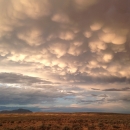Low-tech Process-Based Restoration in Streams and Meadows of Douglas County Wildlife Areas in Washington
Funding Year | Amount | Location |
FY24 | $ 86,042 | Douglas County, Washington |
Project Description
Located within the state’s priority sage grouse conservation area conservation area
A conservation area is a type of national wildlife refuge that consists primarily or entirely of conservation easements on private lands. These conservation easements support private landowner efforts to protect important habitat for fish and wildlife and major migration corridors while helping to keep agricultural lands in production.
Learn more about conservation area , this project will improve hydrologic function, water table levels, and capacity to support riparian riparian
Definition of riparian habitat or riparian areas.
Learn more about riparian and wet meadow habitat along Smith Draw, China Creek, and School Creek on state wildlife area lands. In addition to using low-tech processed-based stream restoration techniques, this project will include planting native plants to restore mesic resources for sagebrush sagebrush
The western United States’ sagebrush country encompasses over 175 million acres of public and private lands. The sagebrush landscape provides many benefits to our rural economies and communities, and it serves as crucial habitat for a diversity of wildlife, including the iconic greater sage-grouse and over 350 other species.
Learn more about sagebrush wildlife.
Partners
Washington Department of Natural Resources, Pheasants Forever, Natural Resource Conservation Service, Yakama Nation, and Conservation Northwest


